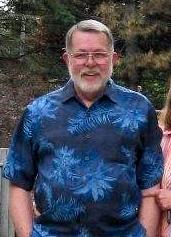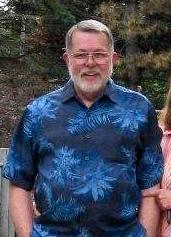

A Colorado lawmaker is crafting state legislation governing when police officers can return to work after a fatal shooting following the highly publicized death of a homeowner killed by police during a break-in at his house.
The case has raised criticism about how police handled the chaotic encounter with Richard “Gary” Black. The 73-year-old was holding the gun he used to fatally shoot an intruder who attacked an 11-year-old boy in the middle of the night when a police officer shot him.
Prosecutors said this week the officer will not face charges in Black’s death, but questions remain over whether he returned to work on the graveyard shift too soon after another shooting.
Aurora Police Officer Drew Limbaugh, who had three years’ experience, had killed another man who pointed a gun at police on June 27, and returned to duty about two weeks later. An attorney for Black’s family thinks that was too soon.
“Any officer should be given time to recover, time to heal,” said Siddhartha Rathod. “Police officers are not military personnel. The job is to protect and serve.”
State Sen. Rhonda Fields said she wants to create statewide requirements for evaluating when officers can return to work. Fields, the assistant majority leader, became an activist after the 2005 murder of her son, Javad and his fiancée Vivian Wolfe and later ran for the Legislature. Fields has met with organizations representing police chiefs and sheriffs about her plans. She dropped a broad requirement that officers stay off duty for a set number of days after receiving pushback from the officials.
Fields said they worried that would hamper smaller departments, especially in rural areas. Instead, she is considering a number of specific requirements, including psychiatric care and training on a gun range or in a simulator.
Some departments, including Denver Police, already use a similar process, she said.
In Aurora, a police unit created two years ago creates an individual plan for each officer returning to work after a shooting. A return plan may include counseling from peers or psychologists, simulator or live firearms training, stress management techniques or other specific training.
Police Chief Nick Metz defended Limbaugh’s return to work after the shooting, saying Aurora far exceeded a national police chiefs’ association recommended for three days off after a shooting. Metz said Limbaugh met with psychologists, received help through a peer support program and went through shooting range exercises with trainers before returning to work after the first shooting.
“The reality is ... we can’t control what our officers are going to run into, whether it’s 10 days after a shooting or two years after a shooting,” Metz said. “The situation dictates their response. And I believe this officer was ready to go back.”
Prosecutors in Arapahoe County determined that Limbaugh’s decision to shoot during the earlier encounter was justified. They said a man wanted for firing a gun into the air pointed a handgun at Limbaugh and another officer during a foot chase. The suspect attempted to fire at police but the gun malfunctioned, prosecutors said.
Based on witness interviews and more than 90 videos captured by officers’ body cameras, Adams County District Attorney Dave Young said this week that Limbaugh will not face charges for shooting Black. The officer did not know who Black was and fired when the homeowner refused police commands to drop his handgun, Young said.
But the attorney for Black’s family said prosecutors failed to note that Limbaugh and others officers never identified themselves as police.
Body camera footage released this week shows Black moving out of a darkened hallway to a lighted living room while police shouted at him from outside the front door, where it was still dark. Police shouted “drop the gun,” ″let me see your hands” and “get your hands in the air” before Black raised his hand holding a flashlight. Limbaugh fired three times.
After police entered the lighted home, Black told them that his son, grandson and “the perpetrator” were in the bathroom.
Black had shot the intruder earlier and later heard unidentified people ordering him to put down a gun he legally owned, he said. “No reasonable person should have dropped that firearm,” Rathod said.
“Had this officer been given the time to recover from the prior shooting, would he have announced himself and said ‘Police’? Would that one word have saved Mr. Black’s life? We won’t know.”









